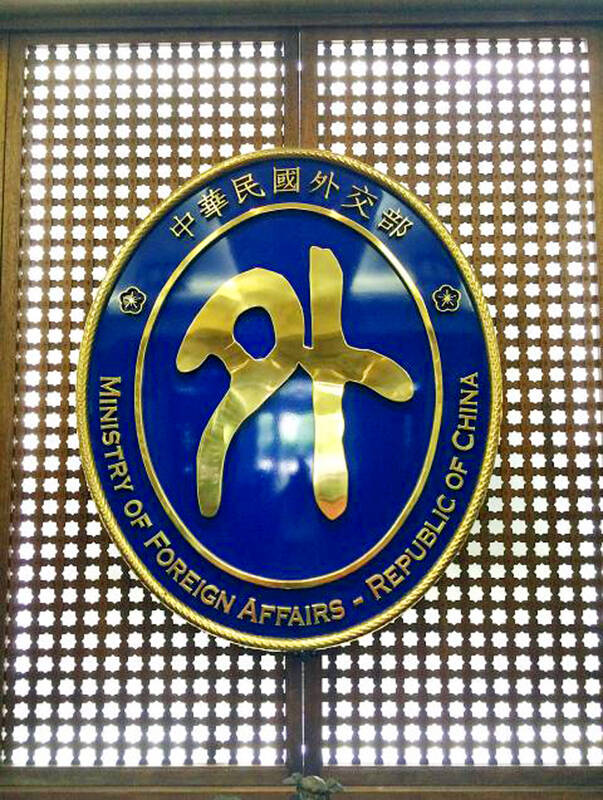The government is considering the possibility of participating in the Philippines’ Luzon Economic Corridor (LEC) project aimed at driving infrastructure development in the region, the Ministry of Foreign Affairs said.
In a written report sent to lawmakers, the ministry said it is considering working with other nations to participate in the LEC project launched by the US, Japan and the Philippines.
The project, part of the G7’s Partnership for Global Infrastructure and Investment, seeks to accelerate coordinated investment in infrastructure projects, including rail and port modernization, clean energy, semiconductors and agribusiness.

Photo: Taipei Times
The LEC is part of the bloc’s efforts to counter China’s Belt and Road Initiative, and Taiwan, a close democratic ally of the US and Japan, has an interest in joining the effort, a diplomatic source said.
Taiwan is thinking about building demonstration farms in the LEC that use smart agricultural technology to promote closer cooperation and boost agricultural production efficiency, the ministry said.
Minister of Foreign Affairs Lin Chia-lung (林佳龍) on the sidelines of a legislative session on Monday said that the Philippines, Taiwan’s neighbor in the first island chain, is facing similar security challenges as Taiwan, and the two economies are also complementary.
“Taiwan could play a pivotal role in the LEC, and it has started close negotiations with the US and other friendly allies” about potentially joining the project, Lin said.
A fact-finding group consisting of people from the public and private sectors have recently concluded a visit to the Philippines, he said.
He did not identify members of the group, but local media reported that a delegation led by National Development Council Minister Paul Liu (劉鏡清) concluded a three-day visit to the Philippines on Friday last week.

AIR DEFENSE: The Norwegian missile system has proved highly effective in Ukraine in its war against Russia, and the US has recommended it for Taiwan, an expert said The Norwegian Advanced Surface-to-Air Missile Systems (NASAMS) Taiwan ordered from the US would be installed in strategically important positions in Taipei and New Taipei City to guard the region, the Ministry of National Defense said in statement yesterday. The air defense system would be deployed in Taipei’s Songshan District (松山) and New Taipei City’s Tamsui District (淡水), the ministry said, adding that the systems could be delivered as soon as the end of this year. The US Defense Security Cooperation Agency has previously said that three NASAMS would be sold to Taiwan. The weapons are part of the 17th US arms sale to

SERIOUS ALLEGATIONS: The suspects formed spy networks and paramilitary groups to kill government officials during a possible Chinese invasion, prosecutors said Prosecutors have indicted seven retired military officers, members of the Rehabilitation Alliance Party, for allegedly obtaining funds from China, and forming paramilitary groups and assassination squads in Taiwan to collaborate with Chinese troops in a possible war. The suspects contravened the National Security Act (國家安全法) by taking photos and drawing maps of key radar stations, missile installations and the American Institute in Taiwan’s headquarters in Taipei, prosecutors said. They allegedly prepared to collaborate with China during a possible invasion of Taiwan, prosecutors said. Retired military officer Chu Hung-i (屈宏義), 62, a Republic of China Army Academy graduate, went to China

INSURRECTION: The NSB said it found evidence the CCP was seeking snipers in Taiwan to target members of the military and foreign organizations in the event of an invasion The number of Chinese spies prosecuted in Taiwan has grown threefold over a four-year period, the National Security Bureau (NSB) said in a report released yesterday. In 2021 and 2022, 16 and 10 spies were prosecuted respectively, but that number grew to 64 last year, it said, adding that the Chinese Communist Party (CCP) was working with gangs in Taiwan to develop a network of armed spies. Spies in Taiwan have on behalf of the CCP used a variety of channels and methods to infiltrate all sectors of the country, and recruited Taiwanese to cooperate in developing organizations and obtaining sensitive information

REGIONAL PEACE: The US is supporting Taiwan’s self-defense capabilities by providing the nation with defensive arms and services, as it aims to maintain cross-strait stability The US on Friday reiterated its support for Taiwan’s self-defense capabilities in a statement affirming its commitment to the Indo-Pacific region. The White House said that Washington has supported Taiwan’s self-defense capabilities through a range of security assistance authorities and resources, including the first-ever use of Foreign Military Financing (FMF) and Presidential Drawdown Authority (PDA) for Taiwan, as well as International Military Education and Training (IMET). US President Joe Biden had identified the Indo-Pacific as the critical region for the future of the US and the world, it said. “In pursuit of regional peace, security and stability, we have reinvested in our defense